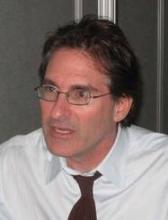Rates and types of adverse events overall and serious adverse events were similar in the two study arms.
But not all prespecified end points were met. Most important, in Dr. McMurray’s view, was the serelaxin group’s lack of a reduction in rehospitalizations for heart failure or renal failure during 60 days of follow-up. In chronic heart failure, it’s very unusual to see a treatment that improves survival but does not reduce rehospitalization. Also, 6-month mortality was not a prespecified end point in RELAX-AHF. And the mortality conclusions were based on relatively small numbers.
"In acute heart failure in the past, we’ve been famously misled by small numbers," he said, citing the example of vesnarinone, which in its first randomized trial showed a 62% reduction in all-cause mortality that didn’t hold up in a second, much larger trial.
Dr. Milton Packer drew attention to the impressively short time between hospital admission and the start of serelaxin, which averaged less than 8 hours.
"No trial has ever pulled that off before. And here’s the thing that’s really exciting about RELAX-AHF: If the mortality effect is correct, and if that mortality effect is related to early treatment, that would be transformative in terms of how we think about acute heart failure. It would mean that just as in myocardial infarction, where time is of the essence, it could be that in acute heart failure time is of the essence. So if the mortality effect is true, this trial changes the way we do things," said Dr. Packer, professor and chairman of the department of clinical sciences at the University of Texas Southwestern Medical Center, Dallas.
It’s plausible that decompressing the heart quite early in an episode of acute heart failure, when the heart is being actively distended, reduces myocardial injury and thereby lowers cardiovascular risk long term. The drop in cardiac troponin levels seen with serelaxin therapy is consistent with such a scenario, according to Dr. Packer.
Dr. Gregg Fonarow said in an interview that on the strength of the evidence from RELAX-AHF plus the phase III study, including the absence of any safety concerns, he thinks serelaxin would readily earn Food and Drug Administration approval for the relief of signs and symptoms of acute heart failure. But winning an indication for mortality reduction might require a confirmatory trial.
"To have a drug that relieves symptoms and improves survival in patients hospitalized with acute heart failure would be off-the-charts exciting after 20 years of trial and error," added Dr. Fonarow, professor of medicine and director of the Ahmanson-UCLA Cardiomyopathy Center.
A spokesperson for Novartis, which sponsored RELAX-AHF, told this publication that the company hasn’t yet determined its filing strategy but believes "this is a strong set of data," and has begun discussions with the major regulatory agencies.
Simultaneous with Dr. Teerlink’s presentation, the RELAX-AHF findings were published online (Lancet 2012 Nov. 7 [doi: 10.1016/S0140-6736(12)61855-8]).
The trial was sponsored by Novartis. Dr. Teerlink reported that he has received research grants from and serves as a consultant to Novartis as well as other pharmaceutical and medical device companies. The discussants reported having no financial conflicts.


